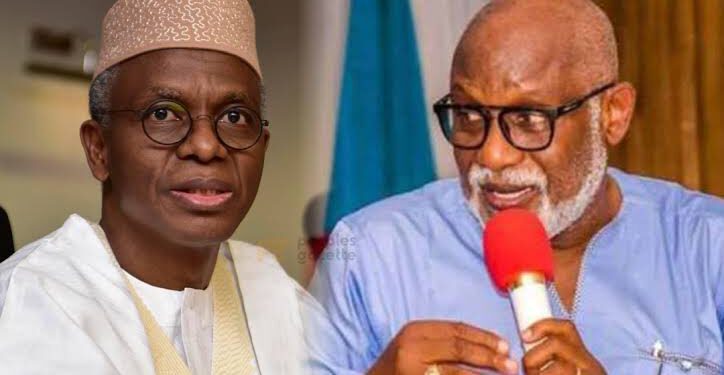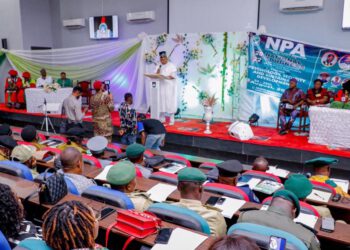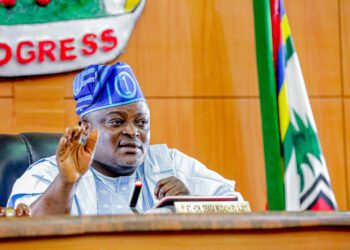A new political association, the Core Federalist (CF), has reasoned that, only true federalism can stop the agitation for power shift and rotational presidency in the country, asserting that, “If Federalism wins, the people win.”
In a statement in Lagos Thursday, its Acting National Spokesman, Mark Adebayo, explained that, the socio-political organisation is out to advocate for a comprehensive restructuring of Nigeria reminding that, one of the founders, the late Comrade Yinka Odumakin, has voiced its concern over the altercations between the Southern and Northern Governor’s forums currently overheating the polity during his life time.
According to the statement, “The communiqués from the forums of the Southern and Northern Governors have made it clearer to identify and determine the issues that should be addressed to enssure a better future for Nigeria and the issues demand urgent attention.”
The CF stated further that, “although the immediate cause of their political rift can be situated in the 2023 general elections, the values they represent, advocate for and promote as their casus belli are inseparably linked to the Federalist imperatives that the CF has repeatedly called all stakeholders to address, namely a restructuring of Nigeria to make governance in Nigeria work better for all Nigerians”.
Against this background, the organization observed that, “It can, therefore, be deduced that, whereas the 2023 general election is the immediate cause of the political rift between the Southern and the Northern Governors, the root cause of the rift is the failure to address the deficiencies, gaps, distortions, inadequacies and lapses in the practice of federalism in Nigeria”.
The CF stated further that, theNorth-South Governors’ political divide has been reduced to three core issues which all have salience with the core issues of inadequacies already identified in the call for restructuring namely:
i. Control of Open Grazing of livestock and its security implications for federating units, linked to devolution of policing and the empowerment of the federating units to enhance community policing
ii. Collection of VAT by Federating units, linked to the call for a review of the Exclusive and Concurrent lists to reflect more devolution of powers to enhance the viability of Federating Units; and
iii. Power sharing through power rotation/power shift mechanisms between the North and South, Geopolitical and Senatorial zones; in this instance principally between the North and South but linked to the need for Constitutional reforms to ensure explicit and Justiciable clauses for breaches of the Federal Character Principle.
The CF however declared that, “But progress cannot be made if the truth and justice of the issues are not addressed”.
The statement read further thus: “The call by Southern Governors for the control of open grazing of livestock through state laws is in order. Although the Northern Governors forum has distanced itself from the call, in reality both Northern and Southern Governors have affirmed the need for such legislations, the typical illustrations are Benue, Katsina and Taraba States that are currently burdened with many internally displaced citizens”.
The CF opined that, “The call by Southern Governors for the collection of Value Added Tax (VAT) by Federating units is also in order. In actual fact, the position of the Northern Governors runs counter to the demands of their forebears prior to independence. To be specific, *items 1 and 7* on the eight-point demand of the North in 1953 regarding the need for regional autonomy states as follows:
1. That each region shall have complete legislative and Executive Autonomy with respect to all matters except the following: External Affairs, Defence, Customs and West African Research Institutions.
7. All the revenues shall be levied and collected by the regional government except Customs revenue at the port of discharge by the central Agency and paid to its treasury.
If Nigeria is to truly practice Federal governance that incentivizes autonomy of federating states, the opposition of the collection of VAT by Federating Units will be a reversal of these intentions of the founding fathers of Nigeria. There may be modifications requiring states to contribute parts of their collection for federal developmental purposes but such contributions can only be meaningful with collective understanding of its purposes and benefits. So, opposition to the call for power rotation and/or power shift is a recipe for chaos”.
Therefore, the Core Federalists called on all Stakeholders to “engraft the power sharing mechanisms explicitly in Constitutional Law and provide legal and administrative triggers to address breaches of such agreements.
Concluding, the association suggested that, given the imperatives which these issues have raised and the consequences they foment in creating an unstable, divided and troubled polity, all stakeholders are again urged to seriously consider the Constitutional Agenda to expedite the following; redraft a new Constitution addressing the above and other important Federalizing Reforms, particularly the Exclusive List before December 2021, conduct a referendum to legitimatize the new Draft Constitution by February 2022 and prepare for Election in May 2023 using the new Federalized Constitution.

















